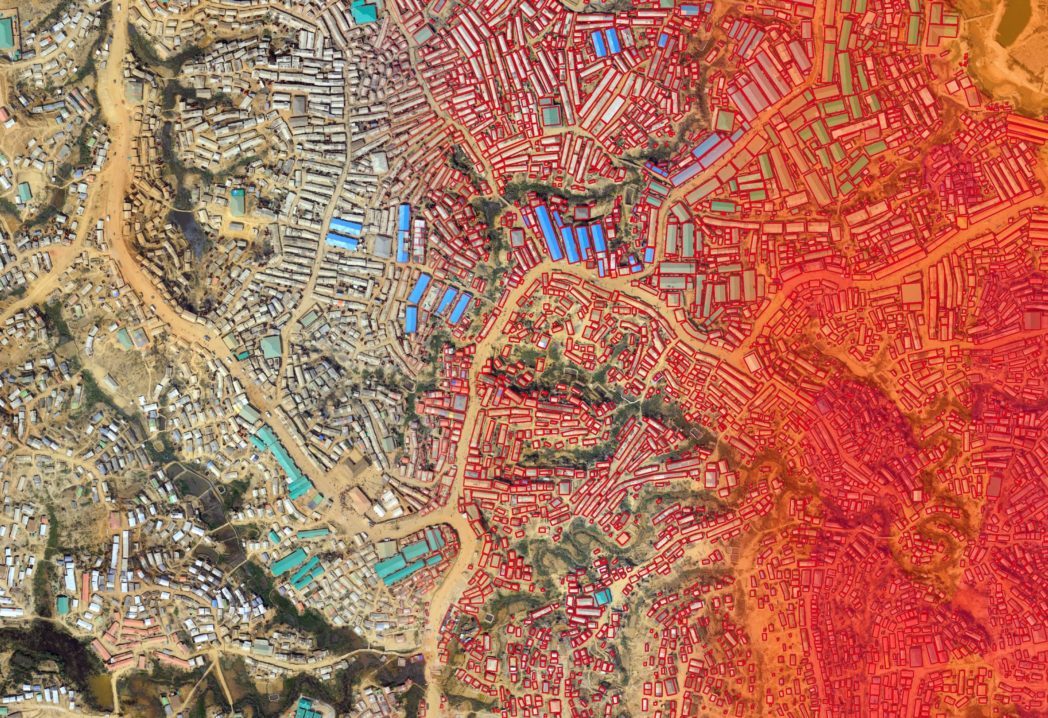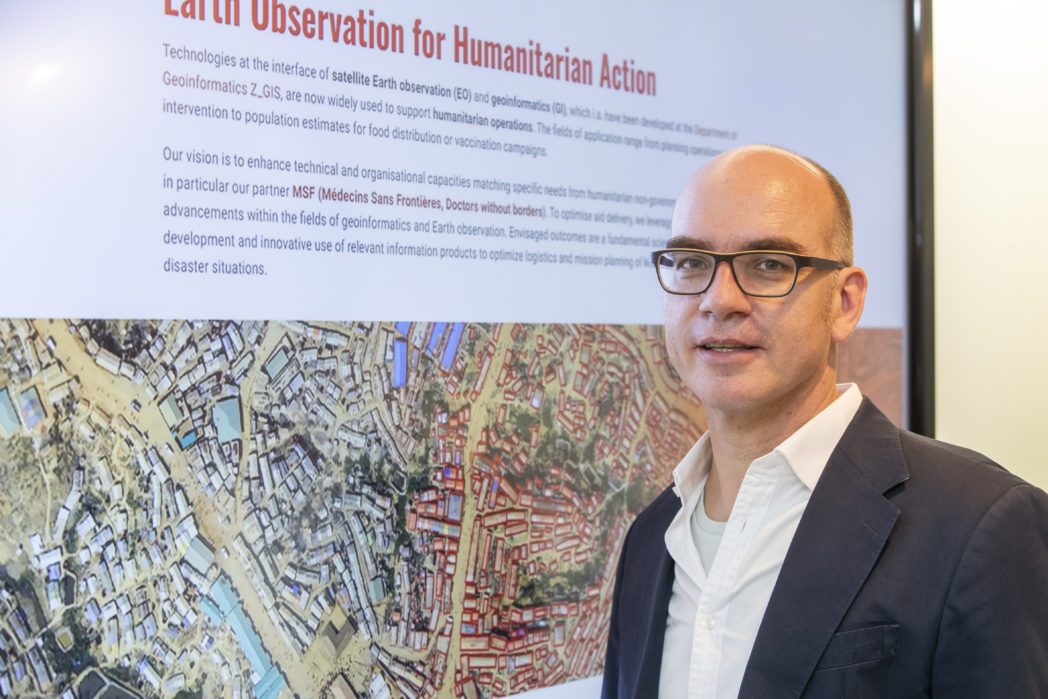
A new Christian Doppler Laboratory (CD Laboratory) was inaugurated on July 8, 2020, at the Department of Geoinformatics – Z_GIS of the Paris Lodron University of Salzburg. Led by Stefan Lang, this CD Laboratory represents a successful collaboration between science and industry, where fundamental research is applied in practice.
For the first time, a Christian Doppler Laboratory is collaborating with a non-governmental organization (NGO) – Doctors Without Borders. Doctors Without Borders operates in numerous crisis areas in over 70 countries. The situation in these conflict zones is often challenging, with limited access to reliable maps, rapidly changing conditions, and remote areas posing significant challenges to their work. Refugee camps are a prime example, as they are often set up quickly and expand rapidly, resembling entire cities. Assessing the situation is not easy: How many people live in the camps? What is the sanitary condition? Where are the water sources?
Earth Observation for humanitarian purposes
Addressing these and many other questions accurately and promptly is crucial for effective on-site assistance. This is where the new CD Laboratory for geospatial and earth observation-based humanitarian technologies (gEOhum) comes into play. Earth observation technologies, including satellite imagery, can help generate real-time (or near-real-time) information for mapping purposes. A wide range of civilian Earth observation satellites, including those from the European Copernicus program, are utilized to combine the advantages of various techniques. For example, satellite images are supplemented with radar images, which can be acquired even in the absence of daylight or in cloudy conditions. By combining these data with publicly available information like road maps, a comprehensive picture of the region to be mapped can be created. Methods such as artificial intelligence, big data, machine learning, deep learning, and more assist in data extraction, analysis, and preparation. Machine learning and knowledge-based digital image analysis, for instance, improve and automate the interpretation of satellite images.

From data generation to information processing
Three research fields arise from the requirements of Médecins Sans Frontières (Doctors Without Borders) for the Christian Doppler Laboratory:
- Img2Info: Data is extracted from satellite images and transformed into valuable information.
- ConSense: Data from various sources are integrated. It involves evaluating which additional data sources can be useful, analyzing them, and linking them with the information from satellite images.
- Info2Comm: This field focuses on data processing. As the data can be highly complex, it needs to be made understandable and usable for the users, in this case, the staff of Médecins Sans Frontières. Striking a balance between the quick availability of information and the careful and time-consuming data processing is crucial.
Médecins Sans Frontières can utilize the information derived from Earth observation for planning their crisis interventions and assessing the situation on the ground. “It is the perspective from space that allows us to see the bigger picture,” says Stefan Lang, the head of the new CD laboratory and a long-term collaborator of Médecins Sans Frontières.
The scientists in the project team can, for example, estimate the number of people in a refugee camp based on satellite images—a task that would be arduous and time-consuming for the on-site relief team. This allows the team to plan which aid supplies, such as medicine or food, are most urgently needed. Satellite images can also provide valuable support in assessing the situation after natural disasters.
Building a Strong Research Location with WISS
The CEO of Innovation Salzburg, Walter Haas, is delighted about the newly opened CD laboratory: “With WISS and the ICT Master Plan, the state of Salzburg has dedicated itself to research and digitalization. The fact that we have now secured a CD laboratory for Salzburg with our strong focus on geoinformatics shows that our strategy is leading us towards becoming a strong economic and research hub.”
The Christian Doppler Laboratory is jointly funded by the Christian Doppler Society and the partner organization Médecins Sans Frontières (Doctors Without Borders). The budget for seven years of research amounts to approximately one million euros. The state of Salzburg supports the laboratory with a PhD position funded by the state.
That might also interest you
11. November 2025
Eleven Million Euros for Five New Research Centers
Salzburg is investing in research: around eleven million euros from EU and state funds will go toward establishing five new research and transfer centers. They cover key future-oriented topics: artificial intelligence, climate protection, health, tourism, and data security.
24. October 2025
Christian Doppler Laboratory unites Artificial Intelligence and Image Processing in Salzburg
Salzburg is strengthening its cutting-edge research: In the new Christian Doppler Laboratory for the Authentication of Persons and Object Surfaces, innovative solutions for enhanced security are being developed by combining artificial intelligence and image processing. These solutions are created in close collaboration between science and industry.
6. March 2025
salz21: Necessary Steps for the Future
On March 5, 2025, salz21 | Home of Innovation once again provided a platform for future topics, innovations, and interdisciplinary exchange. More than 1,000 visitors took the opportunity to learn about current developments and discuss perspectives for tomorrow. Three topics were particularly dominant: climate protection, artificial intelligence, and a strong Europe.
20. September 2024
15 Million Euros for Salzburg’s Life Sciences Future
The federal government and the Province of Salzburg are jointly investing in research, education and medical innovation. The new Life Sciences Masterplan strengthens cooperation between University of Salzburg, Paracelsus Medical University and Salzburg University Hospital, focusing on cancer research, neuroscience and regenerative medicine.